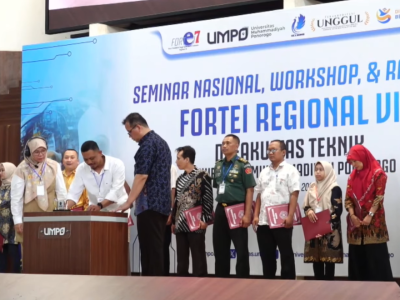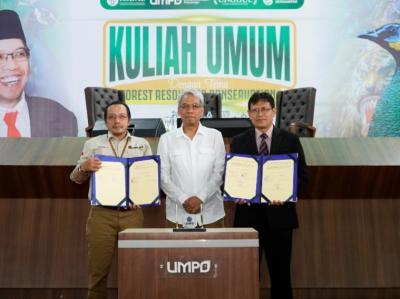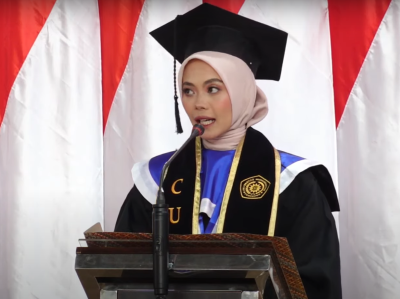- 26 August 2025
- Ajeng Laksmita
UMPO.AC.ID Muhammadiyah University of Ponorogo (UMPO), in collaboration with the East Java Natural Resources Conservation Agency (BBKSDA), held a declaration of support for environmental preservation and the strengthening of conservation education. This event marked a concrete step of synergy between the academic community and conservation institutions—not merely ceremonial, but a shared commitment to safeguard nature and bring real benefits to society.
UMPO Rector, Dr. Rido Kurnianto, M.Ag., emphasized that conservation will be integrated into the Muhammadiyah Higher Education’s Catur Dharma, which includes education, research, community service, and Al-Islam and Kemuhammadiyahan values.
The collaboration focuses on three main areas:
Establishing an Edupark in Nglayang, Jenangan, Ponorogo, as a center for conservation, education, and biodiversity preservation.
Developing a Green Peafowl Breeding Program, preserving this endangered species while also highlighting its cultural significance as an icon of Ponorogo’s Reog tradition.
Building Synergy in Education and Community Service, ranging from public lectures, conservation research, to empowering buffer villages surrounding forest areas.
As an initial step, UMPO has launched the “One Academic Community Member, One Tree” program for the 2025/2026 academic year. Through this initiative, every lecturer, student, and staff member is required to plant at least one tree within the UMPO Edupark. These trees are expected to serve not only as symbols of commitment but also as ecological legacies for future generations.
Moreover, UMPO plans to involve Muhammadiyah students, from early childhood education to high school, in tree-planting activities at the Edupark. According to the Rector, this simple action will cultivate collective awareness that protecting the Earth is part of worship and that conserving the environment is a vital investment for the future.
“With this spirit, let us work hand in hand to build a more sustainable and dignified future for our environment,” concluded the UMPO Rector.












